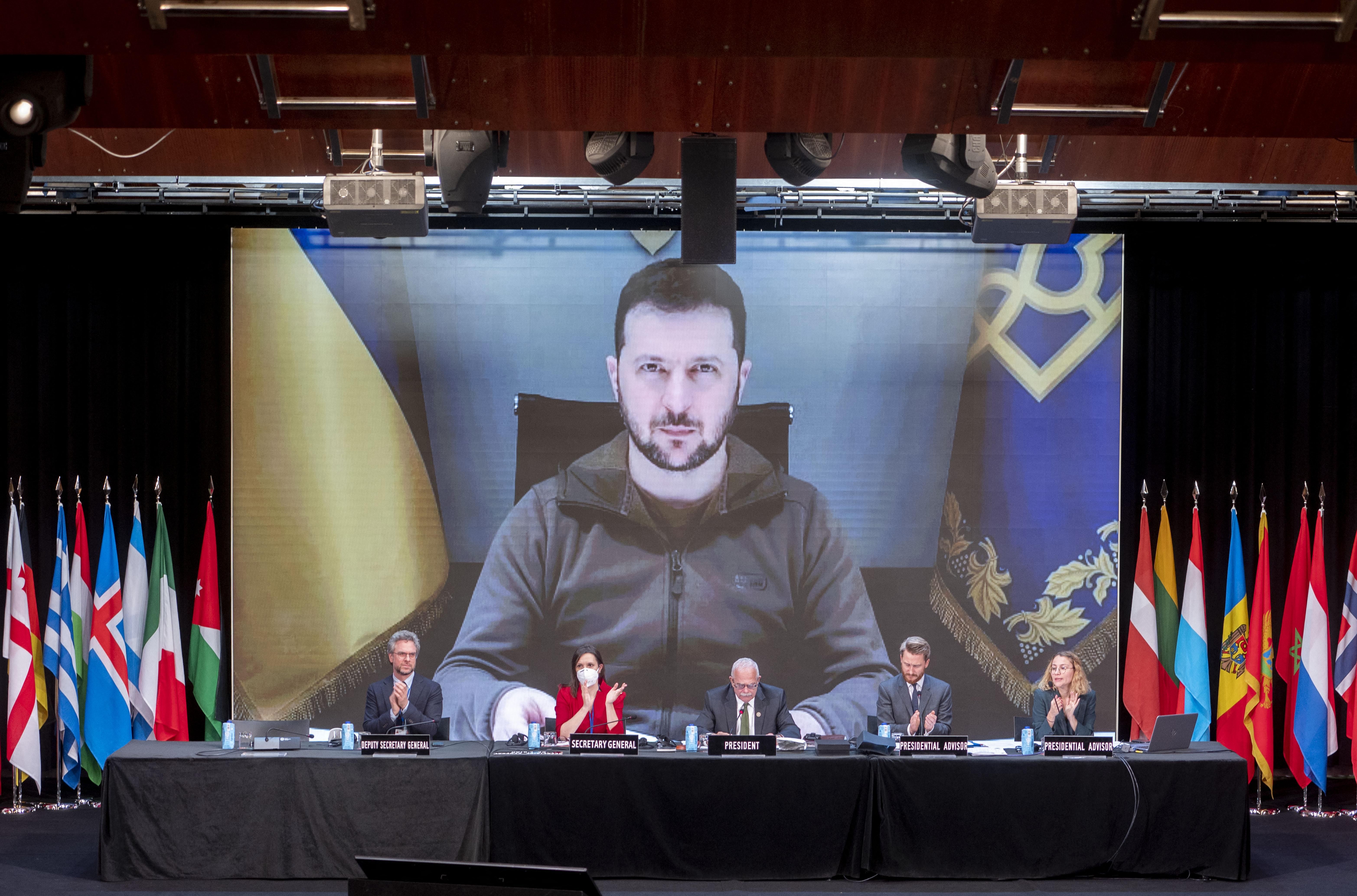Lasting support for Ukraine?
Russia’s President Vladimir Putin hoped for a quick victory that would disarm Ukraine and replace its government. Ukrainian fighters, backed and armed by NATO governments, have shredded Putin’s Plan A. His Plan B is to inflict punishment on Ukrainian civilians with attacks on the infrastructure that provides light and heat during the cold, dark winter ahead to try to divide opinion in Europe and the United States over their long-term support for Ukraine’s government. That’s the backdrop for two noteworthy pieces of news this week. On Tuesday, NATO foreign ministers, gathered in Bucharest, will renew their vow, first made in 2008, that Ukraine will one day join their alliance. In the meantime, individual member states will offer more weapons, perhaps including US small precision bombs fitted to rockets that help Ukraine strike enemy targets deep behind Russian lines. The alliance itself will offer electricity generators, fuel, and medical supplies. The message to Moscow: You won’t win a war of attrition. Ukraine’s allies will boost that country’s defenses for as long as it takes to deny Russia a victory.
Will Turkish troops cross into Syria?
Following a terrorist attack that killed six people on a crowded pedestrian street in Istanbul earlier this month, Turkey’s President Recep Erdoğan has placed blame on Kurdish groups operating inside Turkey and on Kurdish fighters in Syria who, Erdoğan says, supply them with weapons. Turkey has already launched artillery attacks and airstrikes on Syria. Kurdish groups on both sides of the border have denied responsibility for the Istanbul attack, but Erdoğan appears ready to order Turkish troops to cross the border into Syria to create a 30-kilometer “safe zone,” a buffer between Syrian Kurds and the Turkish border. Both the US and Russian governments have asked Erdoğan to stand down. Washington wants Syrian Kurds to help with the fight against Islamic State militants. Moscow wants to protect its ally, strongman Bashar al-Assad, in Damascus. But Erdoğan is unlikely to back down, in part because Turkey’s weak economy leaves him and his party vulnerable ahead of elections next year. He knows that a show of strength against terrorism and of defiance against the US and Russia can boost his political standing.
China protests latest: mellower on Monday
The uncommonly large protests against China’s strict zero-COVID policies, which sprung up in dozens of Chinese cities over the weekend, appeared to have died down significantly on Monday, despite activists’ calls for more demonstrations. The drop-off could just be because Mondays are Mondays, but more likely it’s because police and other security services were out in force, particularly in Beijing and in Shanghai, the site of some of the larger demonstrations. Whether things stay calm depends on what happens next. The recent protests were touched off by a fire in western China that claimed 10 lives because quarantined residents were allegedly prevented from leaving the building, but they drew on two years of frustration about the country’s uniquely extreme COVID policies. Any similar spark could ignite the streets again, and fast. President Xi Jinping, meanwhile, whose ouster many protesters boldly demanded, still faces a fraught choice: lift COVID restrictions and risk a wave among a population that has little immunity, or double down on a policy that has enraged his people. For more on how the lockdown has affected ordinary Chinese, see our story about a Shanghai woman who had to steal cherries from the communal garden to make jam at home.
Check out Ian Bremmer's Quick Take on the political fallout from China's COVID protests here.
What We're Wondering: Should the US drop espionage charges against Julian Assange?
Five leading news organizations think so. In a letter to the US government, the New York Times, Le Monde, The Guardian, El País, and Der Spiegel have urged the US government to drop espionage-related charges against the Australian national, whose WikiLeaks organization published huge troves of classified US materials in 2010 and 2011. The five newspapers, each of which used WikiLeaks materials, say espionage charges threaten free speech more broadly. After all, if leaking things is espionage, then being a reporter becomes a potentially treasonous offense.
What do you think — are the newspapers right? Click here to vote in our Twitter poll.
